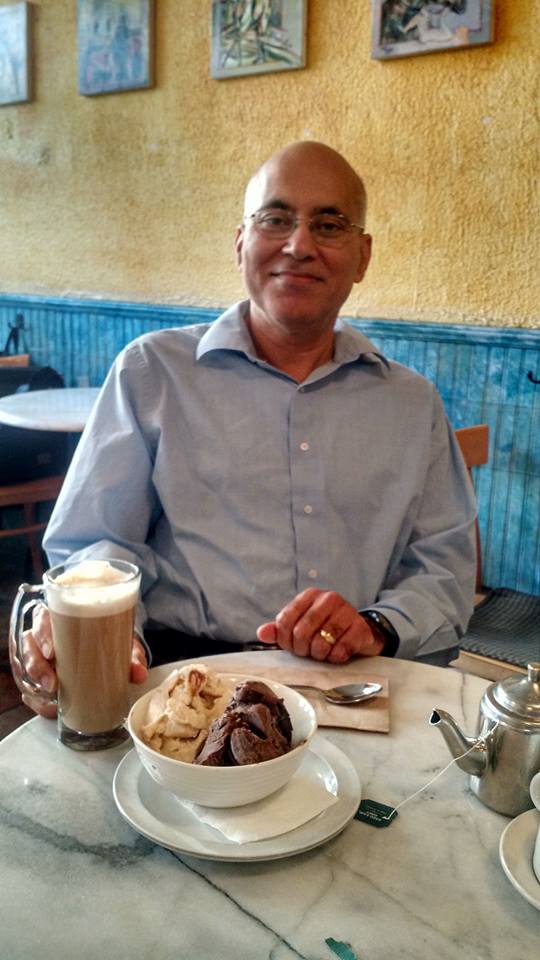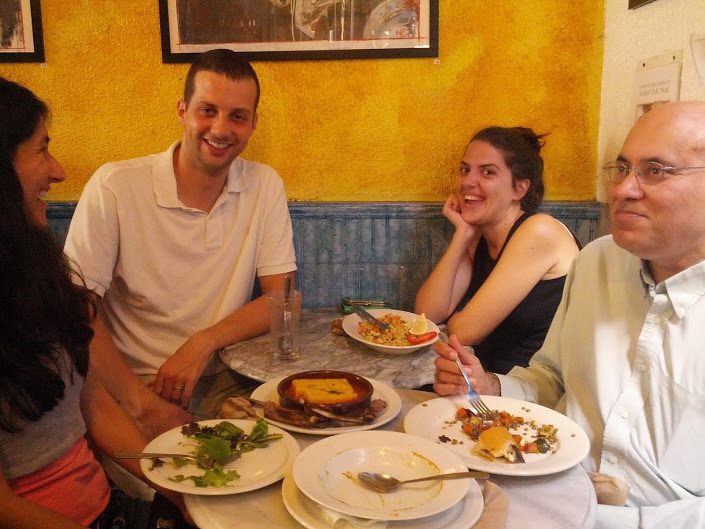
 Bets used to be a thing in scientific circles in days past. In
oxbridge senior common rooms you can still find old
betting
books
where bets between the dons are recorded; it makes for very
amusing reading.
At Berkeley, we try to uphold this tradition, except that instead of
smoke-filled common rooms, we do it at the (now sadly defunct) Cafe
Nefeli. The following was one such bet, made on Sept 23, 2014,
hands shaken in
front of three bemused witnesses (Kateria
Fragkiadaki, Philipp
Krähenbühl, and Georgia Gkioxari,
see photo):
Bets used to be a thing in scientific circles in days past. In
oxbridge senior common rooms you can still find old
betting
books
where bets between the dons are recorded; it makes for very
amusing reading.
At Berkeley, we try to uphold this tradition, except that instead of
smoke-filled common rooms, we do it at the (now sadly defunct) Cafe
Nefeli. The following was one such bet, made on Sept 23, 2014,
hands shaken in
front of three bemused witnesses (Kateria
Fragkiadaki, Philipp
Krähenbühl, and Georgia Gkioxari,
see photo):
"If, by the first day of autumn (Sept 23) of 2015, a method will exist that can match or beat the performance of R-CNN on Pascal VOC detection, without the use of any extra, human annotations (e.g. ImageNet) as pre-training, Mr. Malik promises to buy Mr. Efros one (1) gelato (2 scoops: one chocolate, one vanilla)."
The back story of the bet is as follows. R-CNN came out in CVPR 2014 with really impressive results on PASCAL VOC detection. I think this was a key moment when the more sceptical members within the computer vision community (such as myself) finally embraced deep learning. However, there was a complication: PASCAL VOC was said to be too small to train a ConvNet from scratch, so the network had to be pre-trained on ImageNet first, and then fine-tuned on PASCAL. This to me felt very strange: PASCAL and ImageNet were such different datasets, with completely different label sets and biases... why would training on one help the other? During that afternoon coffee at Nefeli, I suggested that maybe the network didn't actually need the ImageNet labels, just the ImageNet images to pre-train. Basically, the scientific question I wanted answered was: does one need semantic supervision to learn a good representation? Thus, the Gelato Bet was born. To entice other reserachers to get involved, I promised to share my winning gelato with any team that will help me win the bet.
Of course, I lost. Even now, five years later, we still don't have anything that beats ImageNet pre-training for PASCAL VOC (although several methods come tantalizingly close). Indeed, the whole premise that pre-training is needed for PASCAL in the first place might be erronious. On the other hand, the bet probably played a role in getting what we now call self-supervised learning started around ICCV'15. Finally, this taught me a valuable lesson: think twice before betting against your own advisor!
Alyosha
Efros
Berkeley, CA
March 2019
